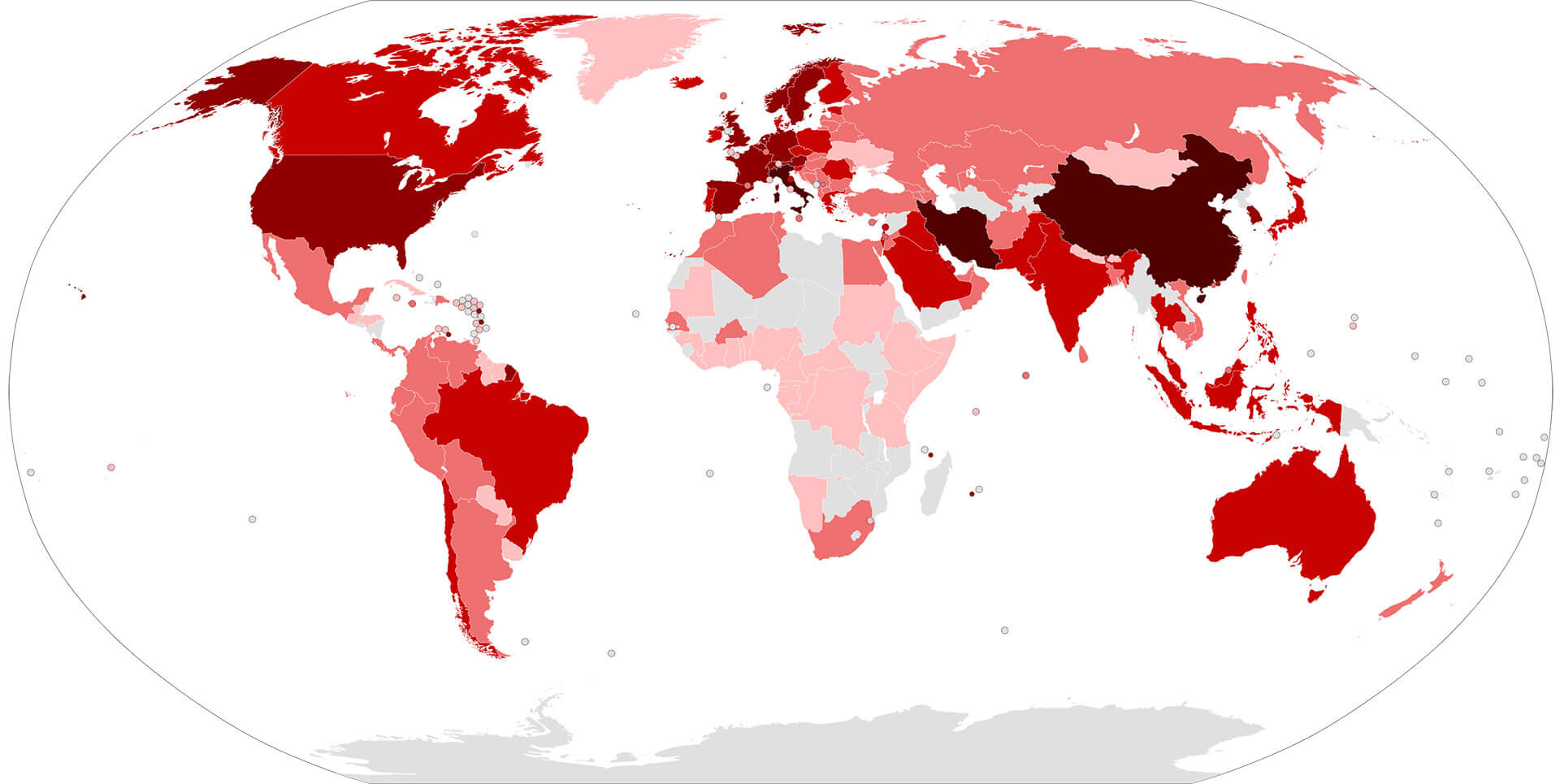From social media to next-door neighbors, concerns and safety measures around COVID-19 are real, valid, and impacting all of us in varying ways.
The domino effect of these needed measures to ensure that the spread of COVID-19 is reduced is priority number one.
As we continue to sort through these abrupt shifts, here are a few kind reminders:
Yes, it’s inconvenient but leading with fear and anxiety does not reduce the realities we are all presently experiencing. This does not mean we are not allowed to feel through all the feels that show up. Honor your impact but do not paint yourself into a space, unaware of how to get out when the paint dries.
Listen to your gut – If there was something planned and the green light to move forward is still in place, make decisions from the space of your own safety and well-being.
Make time to laugh – It may seem silly but laughter is a wonderful way to reduce tension. Whatever opens space for laughter and joy (respectfully), embrace it!
Mindfulness – Again, the levels of impact around COVID-19 are strongly varied, so mindfulness is key. Individual levels of concern are not shared among everyone and should be engaged with care.
Chatter – This is clearly a hot topic! When we inundate ourselves with chatter around these types of topics, be it face to face or on social media, create boundaries for yourself.
Support – Be open to extending and receiving support during this time. If you are in a position to assist (emotional bandwidth included) a friend, loved one, or stranger, know your limits. Likewise, if you are in need, please reach out to receive needed support.
For families with school attending children:
Firstly, my heart goes out to every family directly impacted by this situation.
As an advocate of home education; especially unschooling and self-directed learning, this is the last way Eclectic Learning Network (ELN) would recommend engaging this journey but fully understand the nudging to explore.
Throughout the country and beyond, educational institutions are enforcing brick-n-mortar schools to transition online for at least two weeks. There is a plethora of variables that arise from this shift. Here are a few:
- Populations of families who deeply rely on schools to provide their children with consistent meals due to the heaviness that finances unfortunately bring
- Parents or caregivers who are still required to work and not in a real position to be home with their children during this time
- Spikes in utility usage and groceries bills due to a higher number of people occupying homes during school/work hours and challenged with comfortably paying for those increases
- The conditioned mindset that education is exclusive to school and this change is suggestive that their children will not learn
- Young people who enjoy attending school or would prefer to be in school due to harmful circumstances at home
Previous to current events, the exploration around home education, though well-intentioned, is tethered to trauma-filled experiences. Even if your young person has never attended school, the perceptions and understandings we (adults) carry surrounding what home education is or is not, requires a deeply internal shift, aka deschooling. To decondition oneself from the oppressive, coercive, harm-filled seeds that show-up in parenting and education toward liberatory practices that center healing and learning as a lifestyle over an isolating, rote compulsory education.
Being forced to transition to a new way of living without notice or choice is a hard pill to swallow. Many of our young people experience this pain point daily until adulthood. This is not to say that adulthood does not come with its choice-less movements, ‘cuz it surely does. The needs of all involved are required to fairly explore whether home education is a pathway to explore beyond this global pause.
If you are a parent who currently has children enrolled in school, whether you are contemplating home education or not, here are a few considerations to explore during this time period:
- Allow space for you and your young people to connect on a deeper level through observation and dialogue. The lens in which both young people and parents understand each other is often understood from the available space before or after school/work. Those hours do not always allow much room for openness because we either have something to do or understandably exhausted from our day with zero to give.
- Be honest with yourselves around the fact that you are potentially spending more time in shared space with your young people than you have a long time.
- Young people are equally impacted by this shift and may need time to adjust to this structure. How they are impacted can show up in varied ways, be gentle during this shift.
Two areas that show-up for me with young people during this time:- Disconnection with time or lack of desire to engage their academic requirements from home and would prefer to be in school or somewhere else entirely.
- A deeper and welcomed connection to learning beyond the walls of the classroom with little desire to return to school.
- Utilize online resources that support your young person’s areas of challenge or to expand their existing interests or passions. Websites through libraries and museums offer free learning resources available to all, check it out!
- Allow space for young people to connect with their school friends who do not live close by to maintain their connection.
- Create a parent contact directory to support each other during this time as well as exploring ways to reduce the strain, if something like this should happen again. What are the ways, young people, schools, parents, and community affiliates can better support these types of situations and beyond, as a collective?
If you have feelings that sound something like, “I don’t care what’s going on; I’m done with school”, here are some things you can explore:
- Make time to discuss these realizations with your young people before making moves as this change impacts them deeply and directly. They should know what’s on the table with space to share their views. To be silenced during this time only adds to the disruption.
- Visit your local school district website to learn about the requirements and documents required to legally enroll your young people as homeschoolers (laws vary by state).
- Check out Akilah S. Richards (Fare of the Free Child Podcast) that focuses on ways to engage parenting, education, and race for families interested in self-directed and unschooling approaches as well as practices that support liberation-centered and partnership-based parenting models.
- Reach out to your local learning centers to gain a deeper understanding of their philosophies and values to see if it would potentially be a good fit in preparation for transitioning to a learning center.
- Explore the vast selection of online schools or course sites to learn how they flow. From free to costly, structured, unstructured, and points in-between, it’s all there for you to explore.
This post has been slightly modified from the original, which published on March 14, 2020 on Eclectic Learning Network’s social media pages.
If you enjoyed this article and feel called to give back to ASDE, here are ways you can support our work:
- Donate money
- Share our content with others! Click one of the buttons above to easily share on Twitter, Facebook, or email.
- Consider becoming a Contributor for Tipping Points
Tipping Points Magazine amplifies the diverse voices within the Self-Directed Education movement. The views expressed in our content belong solely to the author(s). The Alliance for Self-Directed Education disclaims responsibility for any interpretation or application of the information provided. Engage in dialogue by reaching out to the author(s) directly.






